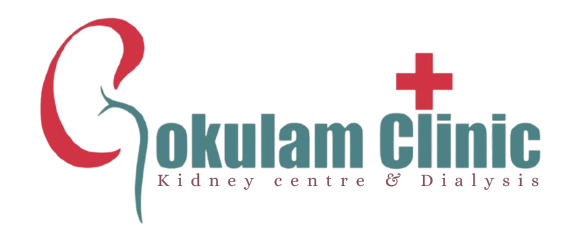Peritoneal Dialysis Hospital in Tambaram | Chennai
Gokulam Hospital offers various peritoneal dialysis options for kidney failure in Tambaram, Chennai administered by our expert medical team. Consult Now.
Advanced Peritoneal Dialysis Solutions in Tambaram | Chennai
Obtain progressive peritoneal dialysis solutions in Chennai designed to satisfy the special requirements of those suffering from renal failure. Throughout the peritoneal dialysis process, our specialized clinics provide thorough treatment, knowledgeable guidance, and support.
We have special equipment to give emergency help if/when necessary.
The peritoneal dialysis method:
One end of a unique PD catheter is surgically placed in the belly, while the other end is exposed above the skin. After that, the abdomen is filled with around two liters of PD fluid. For the waste products to disperse, they must remain there for three to five hours. The old fluid is then replaced with the new one.
Benefits of PD
The option to receive treatment at home is available to the patient. Particularly appropriate for young people, the elderly, heart disease patients, and active, working adults.
Manual Exchange for Peritoneal Dialysis – Continuous Ambulatory Peritoneal Dialysis (CAPD)
Because Gokulam Peritoneal Dialysis is performed in the comfort of the patient’s home, CKD patients can carry on with their routine without interruption. They are also protected from pandemic exposure because of this. PD improves the quality of life and allows individuals with chronic kidney disease to enjoy their freedom.
How is the Peritoneal Dialysis Process Done so far?
After inserting a catheter (silicon tube) into the belly, peritoneal dialysis fluid—a unique fluid—is pumped into the abdomen’s empty area. Waste, extra salt, and water are drawn out of the blood by this fluid. A belly tube is used to connect the patient to peritoneal dialysis. The liquid remains there for a predetermined period. “Dwell” is the term used to describe the fluid in your abdomen. The abdomen may feel bloated or full during a dwell, but it shouldn’t hurt.
The used fluid is drained and thrown away following the dwell. A new bag of fluid is added to the fluid once more. Every time the spent fluid is drained
How Is Peritoneal Dialysis Is Recommended?
PD is a mild type of dialysis where there are no variations in heart rate or blood pressure. Peritoneal dialysis also offers the benefit of home comfort and the freedom to travel without having to worry about the availability of hemodialysis facilities. Based on the nephrologists’ case studies in Hebbal, it appears that peritoneal dialysis and hemodialysis have similar levels of effectiveness. On the other hand, quality-of-life metrics point to a higher quality of life for patients undergoing CAPD.
FAQ
1. Peritoneal dialysis (PD): what is it?
With peritoneal dialysis, waste materials and extra fluid are naturally filtered out of your blood using the lining of your abdomen (peritoneum). It is a kind of home treatment that people with renal failure can use.
2. What is the process of peritoneal dialysis?
A catheter is used to insert dialysate, a unique fluid, into the abdomen during peritoneal dialysis. For a certain amount of time, waste materials and extra fluid from the peritoneal blood vessels enter the dialysate while it is inside the abdomen. After that, the waste materials and spent dialysate are drained off and replaced with brand-new dialysate.
3. What varieties of peritoneal dialysis are there?
Peritoneal dialysis comes in two primary varieties: automated peritoneal dialysis (APD) and continuous ambulatory peritoneal dialysis (CAPD). Dialysate exchanges in CAPD are done by hand all day long. In APD, the exchanges are carried out automatically while the patient is asleep by a device known as a cycler.
4. How can I get more information about solutions for peritoneal dialysis?
Visit a peritoneal dialysis facility or speak with a nephrologist to find out more information about the procedure and if it’s the best course of action for you. Depending on your particular needs, they can offer thorough information and tailored advice.

